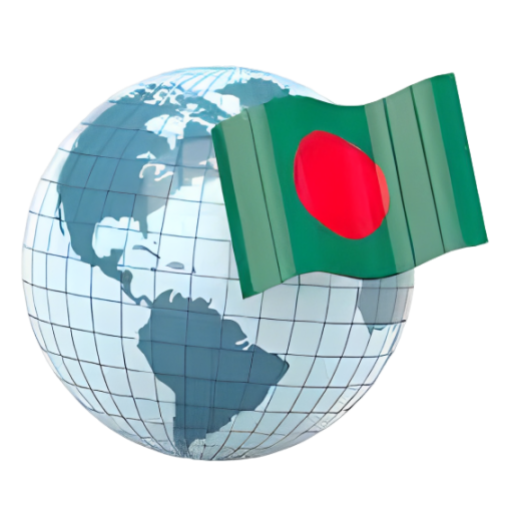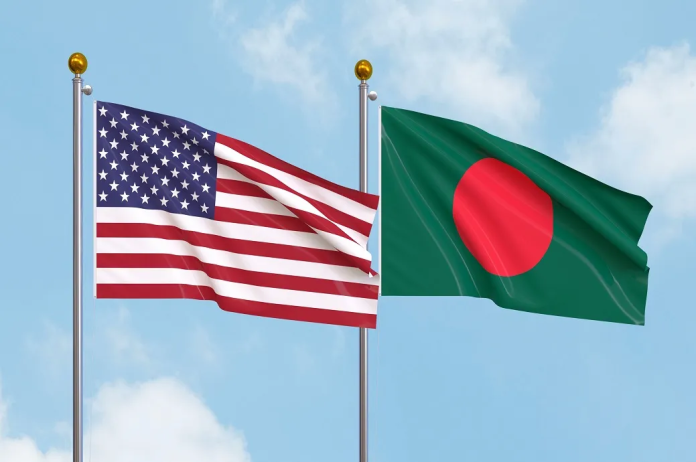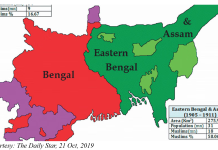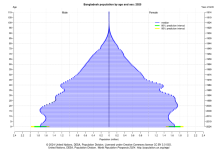Driven by mutual goals and national interests, Bangladesh and the United States (US) have had a solid political and economic relationship since 1972. Amidst growing US strategic interests in Bangladesh, the two countries celebrated the eventful 50 years of political, economic, and diplomatic relations in 2022. A moderate and Muslim-majority Bangladesh is an important strategic and development partner of the US.
The US continues to significantly support humanitarian measures for the Rohingya refugees sheltered in the crowded camps in the Cox’s Bazar district of Bangladesh. The Rohingyas remain the world’s largest stateless and persecuted people. Constantly dependent on humanitarian aid, their future looks gloomy and ambivalent.
History of the tragic episode
Since 2017, a deadly military crackdown has forced more than 900,000 minority Muslim Rohingya men, women, and children from their ancestral homes in the Rakhine state of Myanmar. The Myanmar military indiscriminately killed many of them and scorched numerous homes. The United Nations (UN), the Organization of Islamic Countries (OIC), the US, and its allies not only condemned and termed it “ethnic cleansing”, but also provided humanitarian aid.
Instantly after the crackdown, the US government responded with both diplomatic engagement and emergency humanitarian assistance. In fiscal 2017, with the support of Congress, the US contributed about $104 million in assistance for the Rohingya refugees. It also urged the Myanmar government to end violence, defend the rule of law, and hold accountable those responsible for carnages.
The Rohingya devastation triggered an international backlash. However, Myanmar ensured solid support from its two close allies who are permanent members of the United Nations Security Council with veto powers, i.e., China and Russia.
In December 2020, while Bangladesh’s closest ally, India, refrained from voting, both China and Russia buttressed Myanmar on a United Nations General Assembly resolution on human rights violations against the Rohingya. Despite quite cordial relations with the above-mentioned three world powers, the Bangladesh government failed to obtain their critical support on the Rohingya issue.
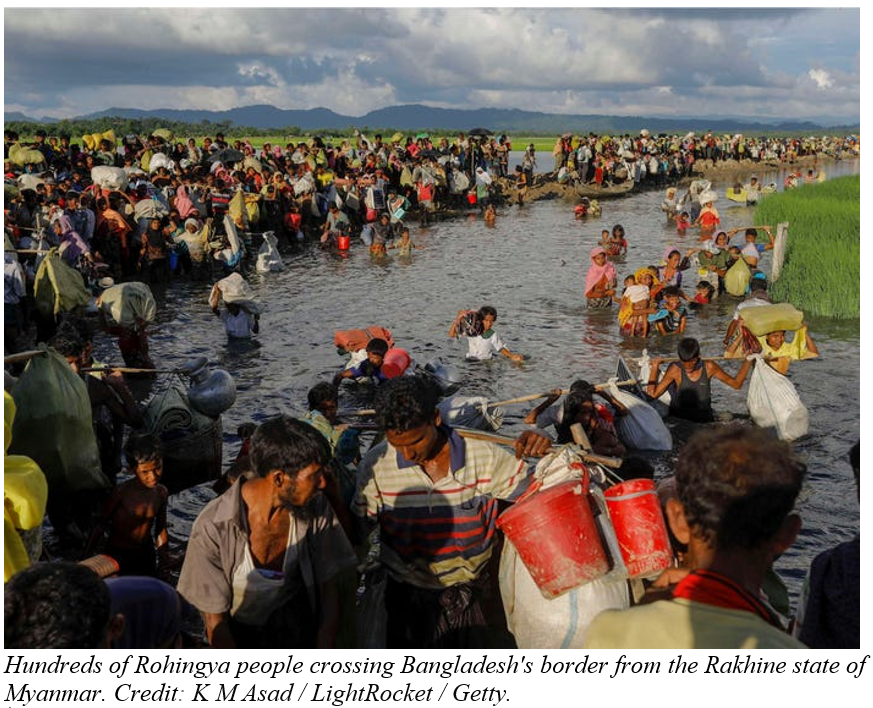
While addressing the 77th United Nations General Assembly (UNGA) on 23 September, 2022, former Bangladesh Prime Minister Sheikh Hasina called upon global leaders to take effective actions to ensure safe, voluntary, and sustainable Rohingya repatriation to their inherited homeland. Hasina said that the protracted issue of Rohingya refugees sheltered in Bangladesh has serious ramifications for her country’s economy, security, and socio-political stability.
Notably, in her previous addresses to the UNGA (2017, 2018, and 2019), she also raised the Rohingya problem and put forward concrete proposals for their voluntary and sustainable early return. Clearly, the uncertainty surrounding the repatriation of Rohingyas to Myanmar has led to significant concerns and frustrations for Bangladesh. The challenging situation could also “fuel extremism” in the country.
Notwithstanding a repatriation agreement reached between the Bangladesh and Myanmar governments on 23 November, 2017, unfortunately till now, not a single Rohingya refugee could be repatriated. In the agreement, there was no clause on the repatriation formula or deadline for the completion of their return. Denied citizenship since 1985, the refugees maintain that there is no safety guarantee if they return to their motherland in the Rakhine state, where they had been living for centuries.
The US administration on several occasions unequivocally condemned Myanmar’s failure to act in creating conditions favourable to their voluntary, safe, and dignified return. Also, a report of the US State Department released in 2018 found that violence against the Rohingya was “extreme, large-scale, widespread, and seemingly geared toward both terrorizing the population and driving out the Rohingya residents.”
Response by President Donald Trump
The first Trump administration responded to the crisis mainly by imposing sanctions on a number of Myanmar’s military officers and by providing humanitarian assistance for the Rohingya refugees. But it preferred to use the term “ethnic cleansing” and did not dub the anti-Rohingya crusade as crimes against humanity or genocide. Preoccupied in pursuing his “America First” approach to foreign policy, President Trump also did not mention the Rohingya crisis in his speeches at the UN.
In the final days of the Trump administration, some US administrators pressed Secretary of State Mike Pompeo to officially declare the Myanmar military’s crusade against the Rohingya was a genocide. Pompeo ignored the idea. However, the former Vice President Mike Pence, in a summit with Suu Kyi, alleged that violence against the Rohingya was “without excuse” and urged her to take actions against those responsible for the carnages.
President Biden Administration’s move
Ostensibly, compared to President Trump, President Joe Biden, who emphasized “human rights and democracy” in his foreign policy, gave more priority to the Rohingya crisis.
The ruthless Myanmar military seized power in a coup in February 2021. The coup reignited violent repression and acts of cruelty throughout Myanmar. The US and its allies around the world condemned the coup.
Responding to the coup, in March 2022, Biden, in an unusual foreign policy move, officially declared that Rohingya minority Muslims were victims of genocide and crimes against humanity. The decision was taken after five years of urgings by the international human rights groups and activists, US politicians, and others concerned.
Even though this decision was long overdue, many view it as a powerful measure to hold the brutal regime accountable. As a result, the Biden administration gave a “strong signal” to the military and began implementing punishments against Myanmar’s military. Besides financial sanctions on 10 leaders and three military-operated and -owned companies, the US reimposed restrictions on exports and froze about $1 billion of assets in the US. The US also provided support to the UN’s Independent Investigative Mechanism for Myanmar, which has a mandate to gather, preserve, and analyse evidence of the serious crimes and violations of international law committed in Myanmar.
ICJ approves investigation on genocide
Notably, the Republic of Gambia, on behalf of the OIC countries, launched a case against Myanmar’s genocide and crimes against humanity at the International Court of Justice (ICJ) in November 2019. The US has shared facts with The Gambia in connection with the case.
However, in a speech at the ICJ, the former top civilian leader now detained by the military, Aung San Suu Kyi, strongly defended her government against allegations of genocide, describing the charges as an “incomplete and misleading factual picture of the situation”. In a letter to Suu Kyi, as many as ten US senators bitterly criticized her for protecting the military before the ICC and defending the mass massacres committed against the Rohingya.
US humanitarian assistance
The US aid remains an important instrument of its foreign policy since the launching of the “Marshal Plan” in 1948. Through bilateral foreign assistance, the US strives to build a safer and more secure, democratic, and prosperous world to complement to its own national security. The US has provided more than $8 billion in development assistance to Bangladesh since 1972.
USAID’s Bureau for Humanitarian Assistance (BHA) primarily coordinates its humanitarian assistance and disaster response efforts. Every year, it delivers critical assistance to millions of people around the world. In fiscal year 2023, USAID responded to as many as 76 crises in 64 countries and provided much-needed emergency humanitarian assistance.
Thus, assisting the general public affected by humanitarian crises is at the core of US support and funding all over the world. It reflects US values and demonstrates its global leadership. In return, the US anticipates the recipient nation’s diplomatic support for US national interests in the international fora. Mostly disbursed through the UN World Food Program (WFP) and the UN Children’s Fund (UNICEF), the aid consists of nutrition assistance and safe drinking water, health care supplies and education, food, and shelter materials.
Notably, with important food security and health programs, the USAID programmes and ventures in Bangladesh are the biggest in Asia. In response to the Rohingya catastrophe, USAID continues to administer a large humanitarian assistance portfolio in Bangladesh. As a long-term development and strategic partner, it remains committed to supporting the country’s efforts to rapidly transform its economy and society to become an upper middle-income nation by 2031.
With the launch of the 2021 Joint Response Plan for the Rohingya Humanitarian Crisis, the US committed approximately $155 million in new assistance to sustain critical efforts to support Rohingya refugees. The US also urged other contributors to contribute to the massive humanitarian response.
In July 2023, the US undersecretary for Civilian Security, Democracy, and Human Rights, Uzra Zeya, met with Prime Minister Sheikh Hasina and declared more than $74 million in humanitarian assistance to support the Rohingya refugees. Since December 2023, the US has made some headway by accepting over 1,200 Rohingyas to the US for relocation. The US also highly praised the generosity of the Bangladeshi government and general public and other Rohingya-host nations.
Again, the US promised to provide $30.5 million in additional assistance for Rohingya in Cox’s Bazar, Bhashan Char, and the region. On a visit to Bangladesh in May 2024, Ambassador Jeffrey Prescott, US representative to the UN Agencies for Food and Agriculture, affirmed the new humanitarian assistance.
On 24 September, 2024, the US declared nearly $199 million in additional humanitarian assistance to address the needs of Rohingya refugees and host communities in Bangladesh and the region at a Rohingya-focused event during the UNGA High-level week. Notably, the US has emerged as the single largest donor of humanitarian assistance to around 1.1 million Rohingya refugees in Bangladesh. The total US funding for the Rohingya crisis has reached over $2.5 billion since August 2017, including more than $2.1 billion in Bangladesh.
The emergence of new global catastrophes is causing a shift in international focus. The war in Ukraine and Israel’s genocide in Gazza have already shifted global attention away from the Rohingya issue. Political and security analysts believe that if the crisis remains unresolved, it possibly will cause instability and insecurity in the “region and beyond”.
The Rohingya refugee crisis remains a daunting challenge for Bangladesh. Over the past eight years, in addition to the substantial costs associated with providing shelter and care for the Rohingya, there has been a concerning increase in armed criminal gunfights, cross-border crimes, and human and drug trafficking. The former Bangladesh governments took the formidable Rohingya issue to the UN quite a few times but had little or no outcome.
A permanent solution to the refugee crisis requires inclusive democratic governance and justice in Myanmar, intensified efforts by the international community, and larger diplomatic collaboration and engagements with China and Russia.
Bangladesh will definitely need sustained support and help from the US and other international donors for hosting them indefinitely. On 27 January, Chief Adviser Dr Muhammad Yunus in a statement expressed thanked President Trump for exempting life-saving food and nutrition support for the Rohingya refugees from the current US aid freeze. Probably Trump is interested to maintaining US presence and influence in Bangladesh—an important strategic partner in South Asia.

Kamal Uddin Ahmed
Dr. Kamal Uddin Ahmed is a former Professor and Chairman, Department of Political Science, University of Dhaka, Bangladesh. He has extensively contributed to the University of Dhaka through his teaching, research, and curriculum development. Dr. Ahmed has worked as a Senate Fellow in the California State Senate, USA in 1989 and subsequently as a Japan Foundation Fellow, Japan. As a Visiting Professor, he lectured at the Yokohama National University, Japan. Dr. Ahmed has to his credit more than 45 research papers published in referred journals at home and abroad. Dr Ahmed authored State of Human Rights in Japan in the New Millennium and Bangladesh and Its Neighbours (Asiatic Society of Bangladesh, 2008), and Reflections on Bangladesh and Global Issues (Student Ways, Dhaka, 2022). He edited a text book entitled American Political System (in Bengali) published by the University of Dhaka in 2007, and co-edited Migration and Migrants in the United States (1995). Dr Ahmed regularly contributes to Dhaka’s The Financial Express, New Age, and Daily Sun. E-mail: kamal112au@yahoo.com
